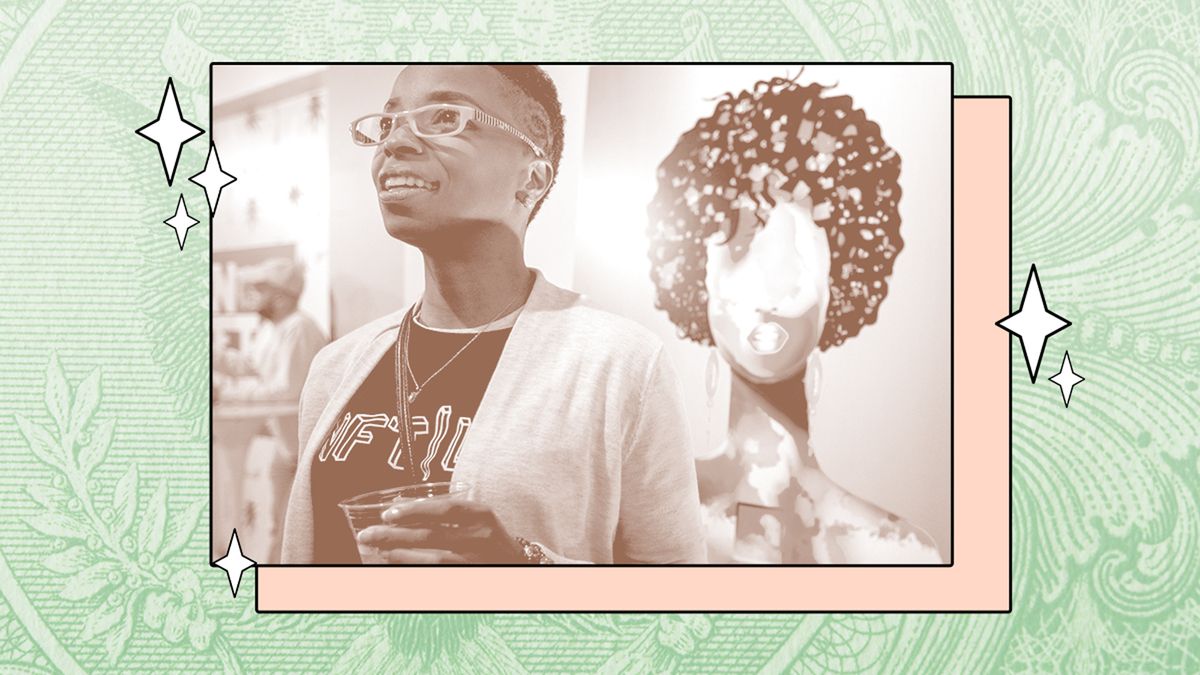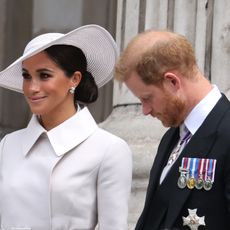
Celebrity news, beauty, fashion advice, and fascinating features, delivered straight to your inbox!
Thank you for signing up to . You will receive a verification email shortly.
There was a problem. Please refresh the page and try again.
When I started the financial planning company LearnVest back during the Great Recession, I spoke with thousands of people across the country to understand their biggest questions about money. Without fail, learning how to invest always topped the list. Whether you’re just a beginner to investing, trying to wade through the jargon of ETFs and Bitcoin, or are optimizing your strategy, it’s always smart to take a step back and ensure that you’ve got the best plan in place for your age and stage.
Your twenties are the perfect time to lay the foundation for a strong financial future. Why? The earlier you start compounding interest, the better. I always say: it’s not magic; it’s just math. There are a lot of free resources you can use to build out a financial plan for yourself, from money tracking apps like Digit (opens in new tab) or Mint, to retirement calculators (like this one from Nerdwallet). If you have a complex financial situation or are going through a major life event (getting married, buying a home, going to grad school), consider talking to a Certified Financial Planner for guidance. This designation is critical because it requires extensive testing and a fiduciary duty to clients, which makes CFPs® the best type of financial advisors to speak with. (Here's how to find a local one.)
Let’s dig into the places you should invest today—both literally and figuratively—to set yourself up for long-term success.
Max Out Your Retirement
In your twenties, the best place to start investing is in a retirement account, specifically your 401K or IRA. As of 2022, you can invest up to $20,500 in a 401K and up to $6,000 in an IRA. That means you can set aside up to $26,500 each year, invest it, and allow it to grow in a tax-advantaged way. Here’s how to get started:
1. Check if your employer offers a 401K match. If you’re not sure, check in with HR. Match programs vary greatly, but many employers will either match up to a percentage of what you contribute. (Note that matches are sometimes on a vesting schedule, meaning that you have to stay with the company for a certain period of time to actually redeem your match dollars). The best news here is that employer matches do not count toward your overall 401K limit, so in other words, you can invest up to $20,500, and your employer match is on top of that.
To encourage employee participation in 401Ks, many companies now auto-enroll employees in plans and automatically increase the percentage of employee contributions. Ask HR what your company’s policy is and make sure your personal settings are in line with the contributions you actually want to make.
2. Look for Roth options. Both 401Ks and IRAs come in two main flavors: traditional and Roth, two terms that refer to how they’re treated by the IRS. When you invest in a Roth IRA or 401K, your contributions are post-tax dollars, so when you withdraw funds in retirement, you’ll take them out tax-free. Roth accounts are a smart option in your twenties because you’re making the bet that your current tax burden today will be lower than a few decades from now as you near retirement.
If you don’t have access to a 401K through work, you can set up an IRA quite literally anywhere that you have an investment account, like Charles Schwab, Fidelity, or Vanguard.
3. Check out target-date ETFs. Contributing to your retirement account is not the same as allocating your retirement balance into investments. Double-check that you’re not leaving a cash balance there but you’re actually setting (and forgetting) these funds into target-date ETFs, which update their risk levels depending on how far you are from retirement. In your twenties, you still have decades of work before retirement, so you have time to take on more risk now. These ETFs are often labeled by anticipated retirement date, so if you’re 25 today, you’d be a good fit for a “Target Retirement 2065” fund. (Not sure where to find these? Just use the chat feature on your financial institution’s site.)
4. Let your retirement funds grow. As soon as you contribute money to a retirement account, consider it off-limits until you actually retire. The IRS has early-withdrawal penalties in place, so if you take money out of these accounts before age 59 ½, you’ll be hit with a 10 percent penalty. (There are some exceptions, like first-time home purchases, but taking money out of retirement should always be a last resort and one you discuss with a tax advisor first).
Last but not least, one challenge of 401Ks is managing old accounts as you move around between companies. It’s recommended that you consider rolling over old accounts into current ones, so you get a better snapshot of your retirement savings all in one place. Doing a rollover can have tricky tax implications, so consult an expert or explore a tool like Capitalize (opens in new tab) to make it easy.
Invest In Your Career
The second big place I want people to invest in their twenties is in their careers. While this might seem removed from personal finance, your career plays a massive role in your financial picture. Most people think the biggest asset they’ll own in their life is a home, but the truth is, it’s your earning power. I believe the biggest asset you have is your future earning stream.
In your twenties, I want you to seek out jobs that enable you to learn as many skill sets as possible, where you're setting yourself up for constant increased earning power. Ideally, you have a role where you develop new skills and build strong relationships with mentors who can help over the course of your career. That’s why the most valuable thing that you can do for your wallet early on is to invest in your career today.
Understand the Basics
And finally, the third place that I want everyone in their twenties to invest in is to simply learn the basics of finance. Back in 2013, I wrote my first book, Financially Fearless, to help empower Americans everywhere to learn the basics of finance. The more that you truly understand your wallet (inside and out), how to tackle debt, understand what goes into a credit score, how your student loans work, etc., the better off you're going to be.
I'm certain everyone reading this is more than capable of being really empowered in their wallet. And the sooner that you understand the basics of finance, the better you're going to feel.
Investing for Beginners: Learn the 4 Types of Investments

It all starts with understanding the basic asset classes.
How to Pick Retail Stocks and Invest In Your Favorite Brands

When it comes to fashion and beauty brands, it is our own income—our very own hard-earned dollars—that fuel these industries. Women could and should be profiting from the success of these multi-billion dollar companies through investing.
What Are NFTS — and Should You Buy Them?

NFTs offer more substance than just a profile picture, and can provide benefits for creators, brands, and consumers. But know the risks and whether you're in the right place to invest.
Alexa is the founder and managing partner of Inspired Capital.
Prior to Inspired Capital, Alexa founded LearnVest in 2008 with the goal of helping people make progress on their money. After raising nearly $75 million in venture capital, LearnVest was acquired by Northwestern Mutual in May 2015 in one of the biggest fintech acquisitions of the decade. Following the acquisition, von Tobel joined the management team of Northwestern Mutual as the company’s first-ever Chief Digital Officer. She later assumed the role of Chief Innovation Officer through which she oversaw Northwestern Mutual’s venture arm.
-
 How This Royal Lived Incognito for 13 Years
How This Royal Lived Incognito for 13 YearsThis is kinda crazy.
By Iris Goldsztajn
-
 Prince Harry May Well Come Back to the U.K. "In a New Role" When Charles Is King, His Former Protection Officer Says
Prince Harry May Well Come Back to the U.K. "In a New Role" When Charles Is King, His Former Protection Officer SaysCould you see this happening?
By Iris Goldsztajn
-
 Princess Anne Has a Pretty Unusual Food Preference, According to a Former Royal Footman
Princess Anne Has a Pretty Unusual Food Preference, According to a Former Royal FootmanSome might even call it...bananas.
By Iris Goldsztajn


